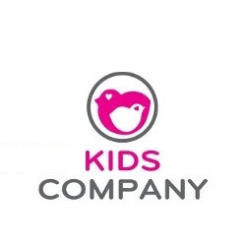The Public Accounts Committee has called on the government to undertake a “fundamental review of how it makes direct and non-competitive grants” to charities, which would include the development of a register to identify those receiving large amounts of funding.
In its report published today the committee described Kids Company as “a 13-year experiment which cost the government £42m” where there had been “all the warning signs” and a number of “missed opportunities” that had been ignored.
Richard Heaton, former permanent secretary to the Cabinet Office, and Chris Wormald, permanent secretary to the Department for Education, appeared before the Public Accounts Committee earlier this month after the National Audit Office published a damning report into Whitehall funding for Kids Company over a 13-year period.
The committee’s report concluded that the charity was given special treatment, at the expense of others, and found that funding decisions were made “without due process” because the charity lobbied government and civil servants “failed to stand up to ministers”.
“Charities and young people across the country are likely to have lost out because of the special attention Kids Company received from successive governments,” the report said.
Meg Hillier MP, chair of the committee, said: “The charity was passed around Whitehall like a hot potato, with no one willing to call time on spending millions of tax pounds for uncertain outcomes.
“The lack of scrutiny over its funding was staggering. Fairness and value for money – fundamental values when considering public spending - appear to have been forgotten in repeated and ultimately doomed attempts to keep Kids Company afloat.
“Even after civil servants finally refused to agree additional funding, ministers ‘took a punt’. The final £3m of public money was handed over just a week before Kids Company closed. Payments during the charity’s final months alone totalled more than £7m.
“The faith that things would improve when they didn’t was naïve. So many other charities did not get the same support and it is clear that Kids Company received special treatment – to the detriment of other deserving charities around the country.”
Recommendations
The PAC recommended that the government review of direct and non-competitive grants should look at how to make the grants process “fair and equitable” and ensure that it considers the longer-term financial sustainability of a prospective grantee.
It recommended that if central government is funding a local service it should seek advice from local bodies. And that when the government expects the service it has funded to be replicated in other charities, the contract explains how this should be done.
The report also recommended that a 'register of grants' should be set up to “identify charities receiving large amounts of government funding from single or multiple sources” and enable government to “share intelligence” about charities.
Government should also “ensure that organisations have robust and transparent mechanisms in place for measuring their own performance” as one of the key criticisms of Kids Company was that it had failed to develop any system for measuring its impact. And that government departments need to develop a “transparent case” for decisions when they use their powers to make grants.
Reaction
Karl Wilding, director of public policy at NCVO, said: “This report will make extremely frustrating reading for the thousands of charities who have to submit highly detailed plans in order to have a hope of funding and who work very hard to produce honest and accurate assessments of the difference they make.
“Successive governments threw money at Kids Company at the same time as they were making life harder for other charities. Local and national government have been imposing complex contracts on many of the charities they contract with in the name of efficiency, but these are often so unwieldy that they create more problems than they solve. Ironically, when it’s done right, grant-funding for funding charities to deliver public services can be excellent value for money.
“More government transparency on outsourcing would be very welcome – but not just charities – we have very little data on how the money that goes into big private sector outsourcing companies is spent, for example in the Work Programme."
Dan Corry, chief executive of charity think tank NPC, has argued the solution lies in making large public grants subject to independent assessments: "An independent assessment for big charity grants would be sensible. Get a specialist in this area to run their eyes over the charity’s impact data, and in-house specialists to investigate the books in detail. When reporting this back to the minister, make the advice open and public.
"The best charities will be more likely to get the grants (and the less effective ones will be encouraged to smarten up). Ministerial decisions will have some transparent information behind them. Most importantly, people who rely on charities will benefit from the highest impact organisations getting greater support."’










